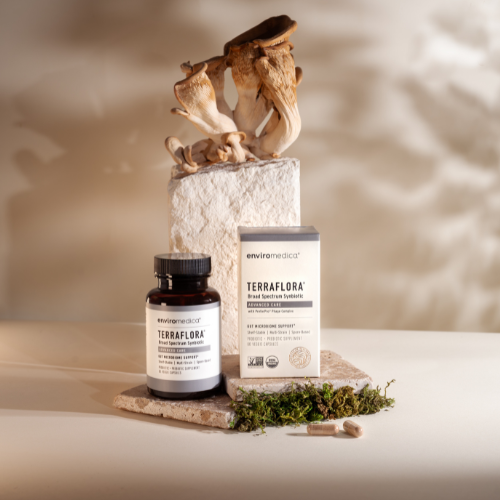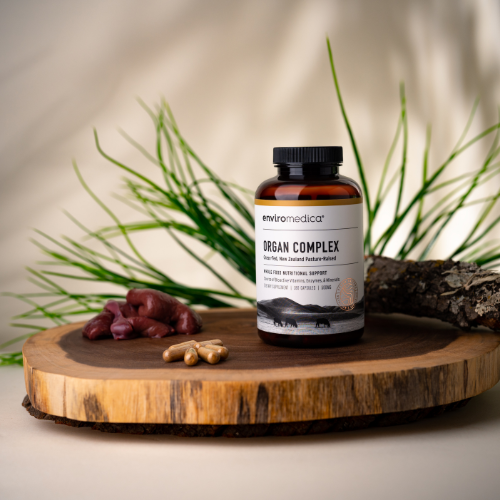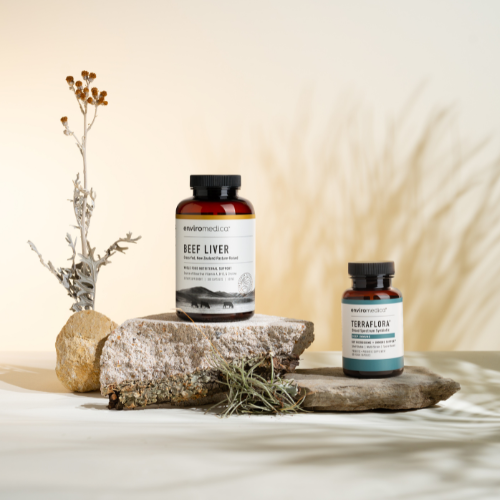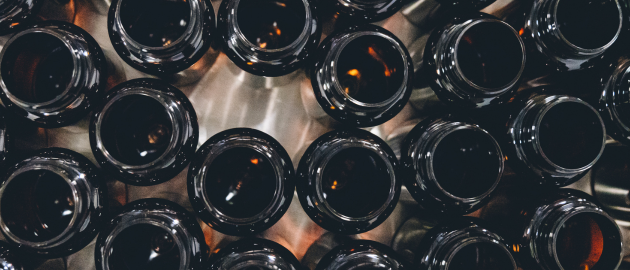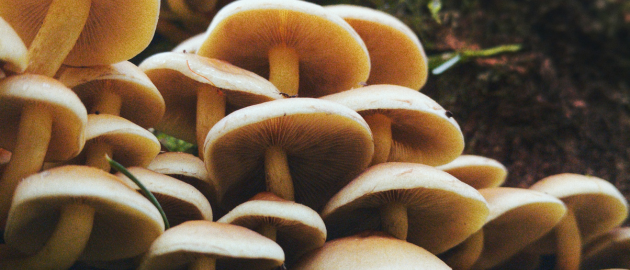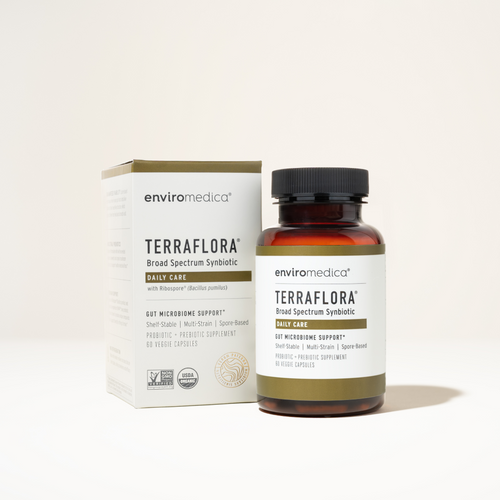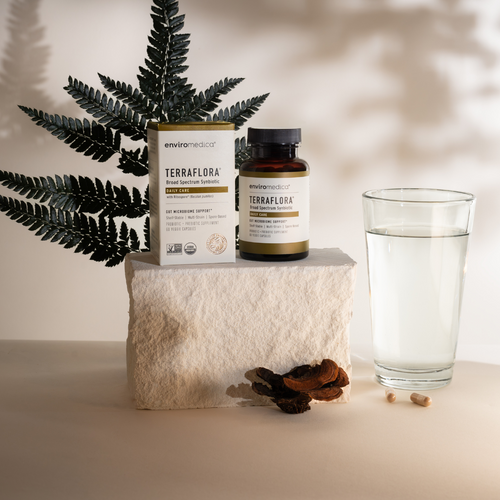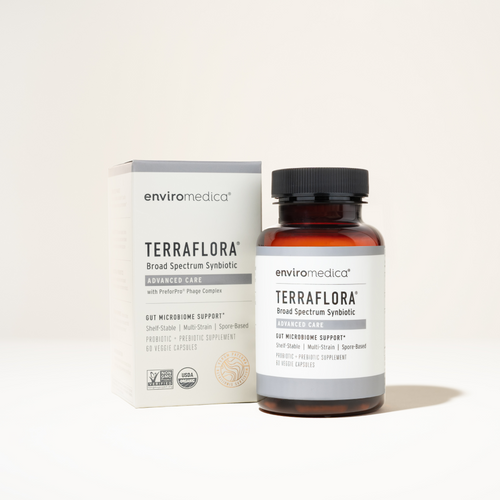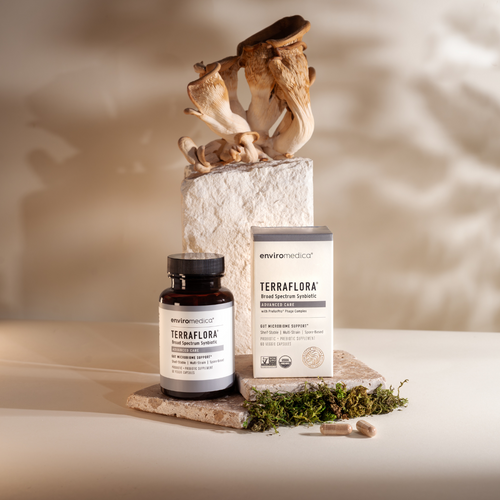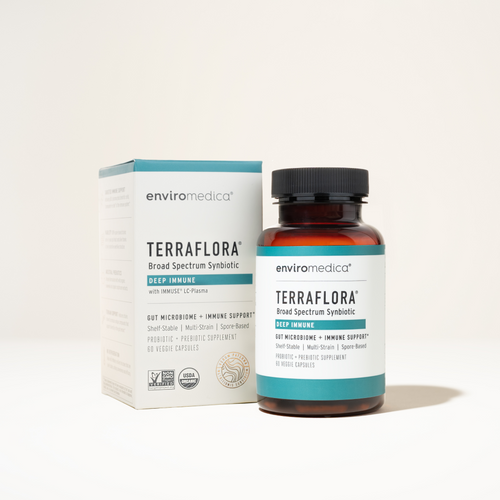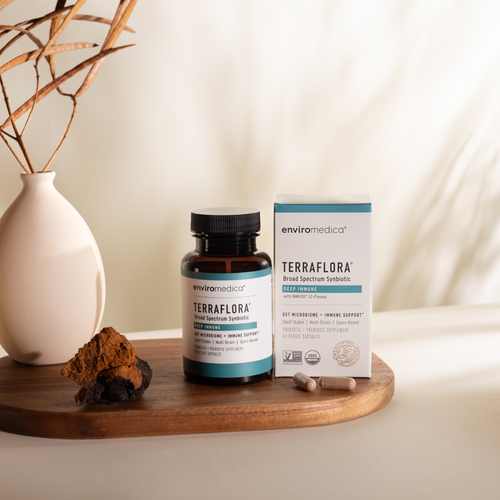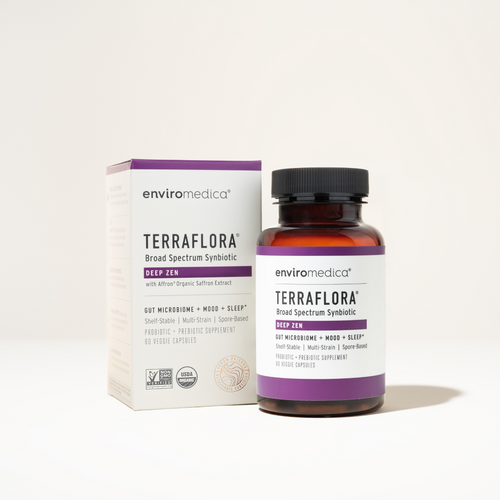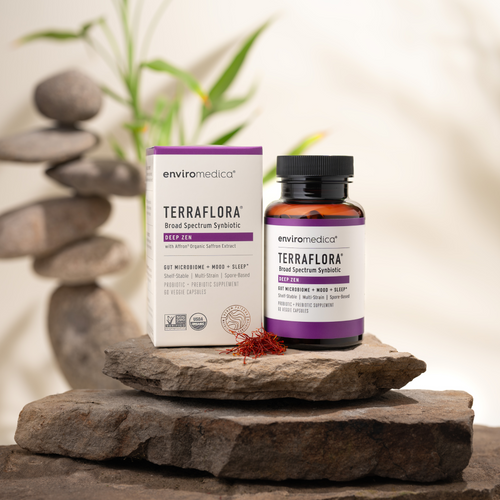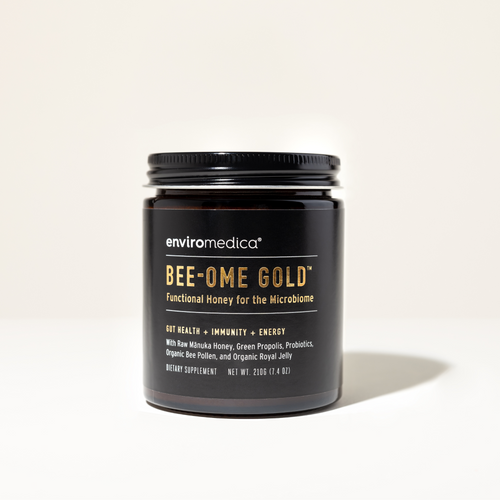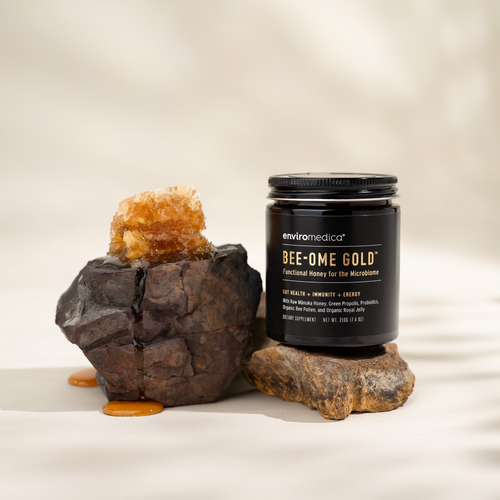From ancestral balance to dysbiosis
Today our gut microbiomes have strayed far from their ancestral roots. Industrialized diets, antibiotic overuse, and sanitized environments have reduced microbial diversity, leading to widespread gut dysbiosis. The solution? Rewilding your gut—restoring microbial balance by reconnecting with nature’s original sources of probiotics and prebiotics. This ancestral approach focuses on environmental microbes, soil-based probiotics, and nutrient-rich wild foods to rejuvenate your microbiome and optimize overall health.
Why rewild your gut?
Your gut microbiome plays a fundamental role in nearly every aspect of health, influencing digestion, immune function, metabolism, and even mental well-being. A diverse microbiome is key to resilience, allowing the body to adapt to stressors, process nutrients efficiently, and defend against pathogens. However, modern lifestyles have dramatically reduced this diversity.
Industrialized diets—low in fiber and high in processed foods—fail to nourish the microbiome, while widespread antibiotic use and excessive sanitization strip away beneficial microbes.
Research shows that populations living in industrialized societies have significantly lower microbial diversity compared to hunter-gatherer and agrarian communities, who maintain close contact with nature and consume more fibrous, unprocessed foods.1,2 This loss of microbial richness has been linked to an increase in autoimmune conditions, allergies, digestive disorders, and even mental health challenges.3
Rewilding your gut means taking steps to restore this lost diversity by reconnecting with nature’s original sources of microbial nourishment. By incorporating soil-based probiotics, wild prebiotic foods, and environmental microbial exposure, you can cultivate a microbiome that more closely resembles the robust gut ecosystems of our ancestors—promoting long-term health, vitality, and resilience.
Environmental microbes: The missing link
For most of human history, we lived in close contact with nature—touching soil, drinking from rivers, handling wild foods, and breathing in diverse microbial communities. This daily exposure to environmental microbes helped shape and strengthen our immune systems and gut microbiomes. However, in modern industrialized societies, we have dramatically reduced our contact with these beneficial microorganisms.
Excessive sanitization, urbanization, and the widespread use of antimicrobial products have significantly altered our microbial environments. While hygiene is essential for preventing disease, our obsession with sterility has contributed to the rise of immune-related disorders such as allergies, asthma, and autoimmune diseases.1 Studies suggest that exposure to soil, plant matter, and animal-associated microbes can increase microbial diversity in the gut, leading to improved immune function and reduced inflammation. 2,3
One example is the Old Friends Hypothesis, which suggests that humans co-evolved with beneficial microbes found in soil, plants, and animals. These microbes played a crucial role in regulating immune responses and preventing chronic inflammation. Without regular exposure to them, our immune systems may become hypersensitive, leading to increased rates of immune dysfunction.4
Reintroducing environmental microbes into our lives doesn’t mean abandoning hygiene but rather finding a balance. Simple practices like gardening, walking barefoot on natural terrain, spending time in forests, and even owning pets can help repopulate the gut with beneficial bacteria. Research has also shown that children who grow up in rural environments, with frequent exposure to soil and farm animals, have lower rates of allergies and autoimmune conditions compared to those raised in highly sanitized urban settings.5
By reconnecting with the microbial world around us, we can rebuild lost microbial diversity and support a healthier, more resilient gut microbiome—one that is better equipped to handle the demands of modern life.
Soil-based probiotics: Nature's original supplements
Unlike conventional probiotics, which primarily feature strains from the Lactobacillus and Bifidobacterium families, soil-based probiotics (SBOs) are a diverse group of spore-forming bacteria naturally found in soil, water, and decomposing plant matter. These bacteria were once an integral part of human gut health due to regular exposure through foraged foods, untreated water, and direct contact with the earth. However, industrialized farming, food processing, and modern sanitization have drastically reduced our intake of these beneficial microbes.
The unique benefits of soil-based organisms
SBOs, including Bacillus subtilis, Bacillus coagulans, and Bacillus clausii, offer several advantages over traditional probiotic strains:
Survivability and resilience: Unlike many conventional probiotics that are fragile and struggle to survive stomach acid and bile, SBOs form protective endospores that allow them to withstand harsh digestive conditions. This ensures they reach the intestines intact, where they can colonize and provide long-term benefits.8,9
Immune system modulation: SBOs play a crucial role in regulating the immune system by interacting with gut-associated lymphoid tissue (GALT). Research suggests they help balance the immune response, reducing inflammation and promoting immune tolerance, which is especially beneficial for autoimmune conditions and allergies.10,11
Digestive and metabolic support: SBOs contribute to digestion by producing enzymes that break down complex carbohydrates, proteins, and fats. For example, Bacillus subtilis produces amylase and protease enzymes that enhance nutrient absorption and reduce bloating.12,13
Competitive exclusion of pathogens: By producing antimicrobial peptides and creating an unfavorable environment for harmful bacteria, SBOs help prevent the overgrowth of opportunistic pathogens like Clostridium difficile, Escherichia coli, and Candida albicans.14,15
How to incorporate soil-based probiotics
For most of human history, SBOs were naturally consumed through unprocessed, farm-fresh foods and exposure to soil. While modern lifestyles limit this contact, there are still ways to reintroduce SBOs into your diet:
Consume fermented and wild foods: Naturally fermented vegetables like kimchi, sauerkraut, and traditionally made miso often contain SBOs if they are prepared with organic, unwashed produce.
Eat organic, minimally processed produce: Conventionally farmed vegetables are often heavily washed and treated with chemicals that strip away beneficial microbes. Choosing organic, farm-fresh produce and handling it minimally before consumption can help restore SBO exposure.
Take a high-quality SBO supplement: Since regular dietary exposure to SBOs is rare in industrialized societies, supplementation with a high-quality SBO probiotic can help replenish these beneficial microbes. Look for strains like Bacillus subtilis and Bacillus coagulans, which are well-researched for their gut health benefits.
The evolutionary case for SBOs
Our ancestors had no need for probiotic supplements because their diets were naturally rich in SBOs. They ate tubers pulled from the ground, drank untreated spring water, and lived in close connection with the land. This continuous microbial exposure contributed to robust gut health and resilience against infections. Today, as gut dysbiosis and inflammatory diseases rise, reintroducing SBOs into our microbiomes through diet and supplementation can help restore the balance we’ve lost.
Wild prebiotics: Nourishing your microbiome
Many wild prebiotic foods help nourish the gut microbiome, but seaweed and mushrooms stand out for their profound impact on gut health. These natural sources provide essential prebiotic compounds that support beneficial bacteria, enhance gut barrier function, and promote overall well-being.
Seaweed is a powerhouse of prebiotics, particularly fucoidans and alginates, which selectively nourish beneficial gut bacteria. 5 Bladderwrack (Fucus vesiculosus) and wakame (Undaria pinnatifida), in particular, contain polysaccharides that enhance gut barrier integrity and support immune function. 6 These marine superfoods also provide iodine and other trace minerals essential for thyroid and metabolic health.
Medicinal mushrooms contain prebiotic compounds, such as beta-glucans, that play a vital role in gut health. For example, chaga (Inonotus obliquus) and reishi (Ganoderma lucidum) support the growth of beneficial gut bacteria, modulate the immune system, and exhibit anti-inflammatory properties.7 These adaptogenic fungi have been used in traditional medicine for centuries to promote longevity and resilience.
How to rewild your gut
1. Reconnect with nature: Spend more time outdoors, garden with your hands in the soil, and avoid excessive sterilization of your environment.
2. Incorporate soil-based probiotics: Consume produce from regenerative farms or home gardens where the soil microbiome is rich and thriving, include fermented foods, and consider SBO supplements.
3. Eat wild prebiotic foods: Incorporate naturally occurring prebiotics like wild berries, fibrous root vegetables, and wild greens into your diet to fuel beneficial gut bacteria.
4. Diversify your diet: Ancestral diets were rich in fiber, fermented foods, and naturally foraged plants, all of which support microbial diversity.
5. Limit antibiotic and antimicrobial overuse: While sometimes necessary, these can deplete beneficial bacteria. Use only when needed and restore your microbiome afterward.
6. Engage in mindful eating practices: Chewing thoroughly, reducing stress, and eating in a relaxed state all support digestion and microbial health.
Rewild your gut, restore your health
By rewilding your gut, you’re not just improving digestion—you’re reclaiming a deeper connection with nature, your ancestors, and the ecosystems that sustain you. Small, intentional changes can lead to profound benefits for your health and vitality.
References
- 1. Sonnenburg JL, Sonnenburg ED. The ancestral and industrialized gut microbiome. Nat Rev Microbiol. 2019;17(6):383-390. https://pubmed.ncbi.nlm.nih.gov/31089293/
- 2. Clemente JC, Pehrsson EC, Blaser MJ, et al. The microbiome of uncontacted Amerindians. Sci Adv. 2015;1(3):e1500183. https://pubmed.ncbi.nlm.nih.gov/26229982/
- 3. Gilbert JA, Quinn RA, Debelius J, et al. Microbiome-wide association studies link dynamic microbial consortia to disease. Nature. 2016;535(7610):94-103. https://pubmed.ncbi.nlm.nih.gov/27383984/
- 4. Hong HA, Khaneja R, Tam NM, et al. Bacillus probiotics: their role in health and disease. Res Microbiol. 2009;160(10):803-818. https://pmc.ncbi.nlm.nih.gov/articles/PMC5554123/
- 5. Wang Y, Xing M, Cao Q, Ji A, Liang H, Song S. Fucoidan: structure and bioactivity. Molecules. 2019;24(23):4283. https://pubmed.ncbi.nlm.nih.gov/30897733/
- 6. Zha XQ, Xiao JJ, Zhang HN, et al. Immunomodulatory effects of a fucoidan isolated from Saccharina japonica in mice. Food Funct. 2019;10(8):5124-5133. https://pmc.ncbi.nlm.nih.gov/articles/PMC7345355/
- 7. Xu X, Yan H, Chen J, Zhang X. Bioactive proteins from mushrooms. Biotechnol Adv. 2011;29(6):667-674. https://pubmed.ncbi.nlm.nih.gov/21605654/
- 8. Cutting SM. Bacillus probiotics. Food Microbiol. 2011;28(2):214-220. doi:10.1016/j.fm.2010.03.007
- 9. Ripert G, Racedo SM, Elie AM, et al. Secreted compounds of Bacillus clausii strain O/C inhibit Clostridium difficile growth and toxin production in vitro. PLoS One. 2016;11(8):e0161180. doi:10.1371/journal.pone.0161180
- 10. Hong HA, Khaneja R, Tam NM, et al. Bacillus probiotics: their role in health and disease. Res Microbiol. 2009;160(10):803-818. doi:10.1016/j.resmic.2009.08.006
- 11. Lefevre M, Racedo SM, Denayrolles M, et al. Bacillus clausii CNCM I-2745 modulates immune responses and prevents experimental colitis in mice. PLoS One. 2017;12(1):e0169479. doi:10.1371/journal.pone.0169479
- 12. Barbosa TM, Serra CR, La Ragione RM, Woodward MJ, Henriques AO. Screening for Bacillus isolates in the broiler gastrointestinal tract. Appl Environ Microbiol. 2005;71(2):968-978. doi:10.1128/AEM.71.2.968-978.2005
- 13. De Boever P, Wouters R, Verschaeve L, Berckmans P, Schoeters G, Verstraete W. Protective effect of the microbial Bacillus natto on intestinal transit in rats. Food Microbiol. 2000;17(4):451-456. doi:10.1006/fmic.1999.0315
- 14. Senok AC, Ismaeel AY, Botta GA. Probiotics: facts and myths. Clin Microbiol Infect. 2005;11(12):958-966. doi:10.1111/j.1469-0691.2005.01228.x
- 15. XMazza P. The use of Bacillus probiotics in aquaculture. Res Microbiol. 1994;145(8):757-765. doi:10.1016/0923-2508(94)90073-6
